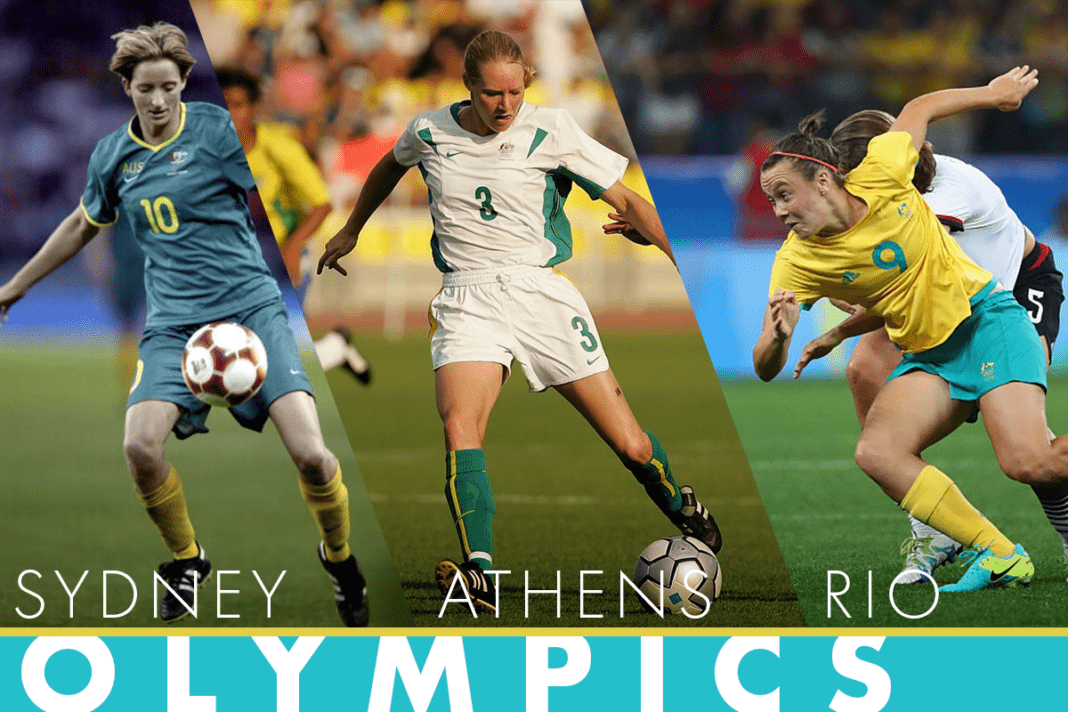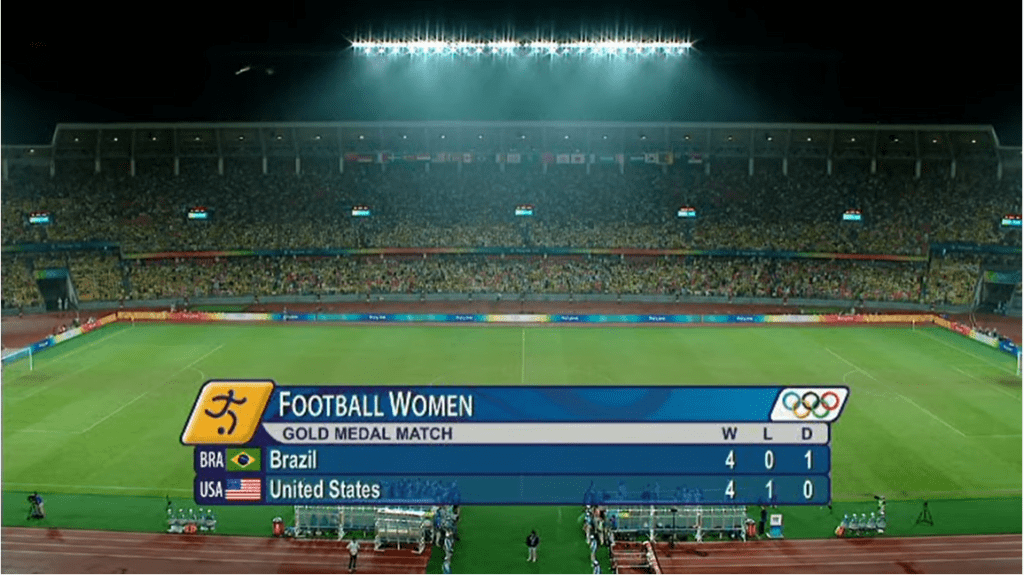
Football was introduced as an Olympic sport for women in 1996, almost 100 years after it was officially introduced by the International Olympic Committee for men in Paris, 1900.
Since ’96, the Australian women’s football team have made four Olympic appearances. Let’s take you through this history.
1996 Atlanta, Georgia USA (DNQ)
The first incantation of Olympic football for women featured the top seven best-ranked teams from the 1995 FIFA Women’s World Cup, alongside hosts, the United States.
While the newly minted “Matildas” appeared at the ’95 World Cup, they finished bottom of their group, losing to Denmark, eventual winners the United States and runners-up, China.
2000 Sydney, Australia (7th)
As hosts, and representing Oceania, the Matildas gained automatic qualification into the football event for their first-ever appearance.
In an 8 team competition with two groups, the Matildas were drawn with Germany, Brazil and Sweden.
Losing 3-0 to Germany and 2-1 Brazil before securing a 1-1 draw with Sweden meant the Matildas were eliminated before the knockout rounds. Cheryl Salisbury and Sunni Hughes were the goalscorers for the Matildas.
Australia finished 7th overall. Norway defeated the USA 3-2 in extra time to win gold.
2004 Athens, Greece (5th)
Australia qualified for their second Olympic women’s football tournament via the OFC Women’s Olympic Qualifying tournament. Kate Gill and April Mann finished as joint-highest scorers for the tournament, with an overall tally of 17 goals.
Drawn in Group G against the United States, Brazil, and hosts Greece, the Matildas finished with a 1-1-1 (WDL) record and finished 5th overall in the competition.
Game 1: Brazil (Marta 36′) 1-0 Australia
Game 2: Greece 0-1 Australia (Heather Garriock 27′)
Game 3: United States (Kristine Lilly 19′) 1-1 Australia (Joey Peters 82′)
Quarter-Finals: Sweden (Hanna Ljungberg 25′, Sara Larsson 30′) 2-1 Australia (Lisa De Vanna 48′)
The USA defeated Brazil 2-1 in the Gold Medal match, requiring an extra-time goal by Abby Wambach.
2008 Beijing, China (DNQ)
At the start of 2006, Australia left the OFC for the second time1 and joined the Asian Football Confederation. The move resulted in the Matildas competing against stronger nations and ultimately failing to qualify for the Olympic Games
Group winners Japan and North Korea qualified from the AFC Preliminary competition, alongside China qualifying as the host.
An extra-time goal from USA’s Carli Lloyd saw them win their third Olympic gold medal, defeating Brazil.
1. Australia first resigned from the OFC in 1972 to join the AFC, returning to the OFC in 1978.
2012 London (DNQ)
The winners and runners-up from the AFC Preliminary Competition round-robin tournament in China would qualify for the 2012 Olympics.
Starting with 18 nations (17 after Qatar withdrew), the competition was eventually whittled down to a final round with six. Australia, China, Japan, North Korea and South Korea all received byes into the final.
| Game 1: | AUS 0-1 PRK |
| Game 2: | AUS 5-1 THA Heyman x2, Kyah Simon, Tameka Yallop (nee Butt), Emily van Egmond |
| Game 3: | JPN 1-0 AUS |
| Game 4: | AUS 1-0 CHN |
| Game 5: | AUS 2-1 KOR |
With three wins and two losses, the Matildas finished in third position, ultimately not enough to qualify. Japan and North Korea successfully progressed.
Controversy then marred North Korea’s Olympic appearance in more ways than one: first a national flag mix-up, and then six players and two medical officers were banned after players tested positive for anabolic steroids. As part of the ban, North Korea were excluded from World Cup competition for four years.
The USA won their fourth Olympic gold medal in London, defeating Japan in the final (highlights). Canada medalled for the first time in just their second appearance, securing a bronze medal in defeating France 1-0.
2016 Rio, Brazil (7th)
After missing the Olympics in 2008 and 2012, the Matildas made it back for their third appearance. Hopes were high off the back of their highest FIFA World Ranking at the time – 6th.
Australia were drawn in Group F against Canada, Germany and Zimbabwe.
| Game 1: | CAN 2-0 AUS |
| Game 2: | GER 2-2 AUS (Kerr & Foord scored for AUS) |
| Game 3: | AUS 6-1 ZIM (De Vanna, Heyman x2, Kennedy, Polkinghorne, Kyah Simon) |
Finishing third in their group after a 1-1-1 result, the Matildas made it through to the quarter-finals where they faced tournament host Brazil.
We don’t need to see the highlights of that match, but you can Google it if you wish to see the Matildas lose 7-6 on penalties after finishing 0-0 at the end of regular and extra time.
Germany went on to win gold (highlights), with Sweden taking silver after earlier defeating giants USA in their quarter-final.
Let’s see what 2021 brings us with a new coach and a challenging year around the world.
Follow Beyond90's coverage of the 2021 Tokyo Olympics







